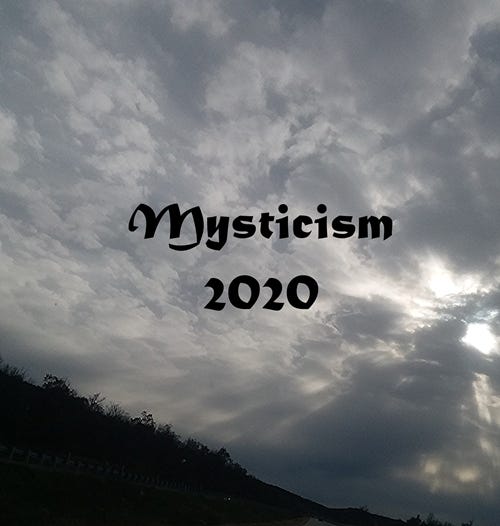New Thinking, Old Thinking
Sufism is an integral part of Islam, often referred to as its mystical or spiritual dimension, though it exists both within and sometimes outside the traditional boundaries of Sunni and Shia Islam. It emphasizes the inward search for God and advocates for a direct, personal experience of the Divine through practices like dhikr (remembrance of God), meditation, and love. While Sufism shares the core beliefs of Islam, such as the Five Pillars, it places a special focus on the purification of the inner self, which it sees as complementary to the outward observance of religious rites. Sufi orders, or tariqas, are organized around spiritual masters or sheikhs who guide disciples on this path, and they have historically interacted with both Sunni and Shia communities, sometimes blending with local customs and beliefs. However, not all Muslims embrace Sufism; some orthodox groups criticize it for perceived deviations from strict Islamic practices, leading to a spectrum of acceptance and rejection within the broader Islamic world. Nevertheless, Sufism's influence on Islamic culture through poetry, music, and philosophy is profound, offering a more esoteric interpretation of faith that resonates with many seeking a deeper spiritual connection.
Fazal Inayat-Khan, known for leading the International Sufi Movement and his contributions through writings, is a figure whose reputation in Islamic culture today is nuanced. Within the context of Sufism, particularly in the lineage of Hazrat Inayat Khan, his grandfather, Fazal is respected for his innovative approach to blending traditional Sufi teachings with contemporary psychological insights. However, his influence outside of this specific Sufi circle is less pronounced, as mainstream Islamic culture might view his modern interpretations with skepticism or indifference, given the diverse reactions to Sufism across different Islamic communities. His legacy is more securely established within the Western Sufi movements that follow his grandfather's teachings, where he's remembered for his efforts to make Sufism relevant to modern spiritual seekers, but his name might not resonate as strongly in broader Islamic discourse where traditional scholarship holds more sway.
Fazal Inayat-Khan's book "New Thinking, Old Thinking: The Sufi Prism" explores the intersection of traditional Sufi teachings with modern psychological and philosophical insights, offering a contemporary approach to Sufism's age-old wisdom. Inayat-Khan articulates that Sufism is both non-definitive and inclusive, suggesting that its essence transcends formal definitions and is adaptable across different cultures and epochs. This aligns with the Sufi concept of "haqiqa," or the inner truth, which is not bound by dogma but is instead a living, evolving experience of reality. He argues that Sufism, at its core, encourages a shift from rigid, dogmatic thinking to a more fluid, experiential understanding of life and spirituality, mirroring the Sufi practice of dhikr, where the remembrance of God is not just a ritual but a way to transform consciousness.
In the book, Inayat-Khan discusses how Sufism can be experiential, emphasizing personal revelation and direct spiritual experience over second-hand theological knowledge. This resonates with Sufi practices like meditation, music, and dance (such as the famous whirling dervishes), which aim to dissolve the ego and facilitate an intimate encounter with the Divine. He posits that "new thinking" involves creativity and adaptability, reflecting the Sufi notion that the path to God is as unique as each individual, advocating for personal spiritual growth through innovative means rather than adhering strictly to traditional forms. This approach encourages Sufis to engage with the world in a way that integrates ancient wisdom with modern challenges, fostering spiritual evolution.
Inayat-Khan also delves into the psychological aspects of Sufism, linking it with humanistic psychology, where the focus is on the individual's journey towards self-actualization and wholeness. He sees Sufism as a path that can harmonize with psychological practices aimed at healing and self-realization, suggesting that old and new thinking can complement each other in nurturing the soul. His discussions on relationships, love, and marriage as paths to spiritual growth echo Sufi teachings on love as a transformative force, where love for the Divine and love for fellow beings are intertwined, leading to the purification of the heart.
Lastly, "New Thinking, Old Thinking" reflects the Sufi principle of unity of being, where all distinctions between the self and the Divine, or between different forms of knowledge, ultimately dissolve. Inayat-Khan's work highlights how Sufism can remain relevant by embracing change and diversity in spiritual expression, encouraging seekers to look beyond historical or cultural boundaries to find the eternal truth in daily life. This adaptability is crucial for Sufism's survival and relevance in a rapidly changing world, suggesting that while the core teachings of Sufism are ancient, their application can and should evolve to meet contemporary spiritual needs.
This book came out in 1979 and I picked it up in the bookstore where I worked at the time. Along with Behold The Spirit by Alan Watts, and the Feng & English translation of the Tao Te Ching, this book set me on a life-long course of study of mysticism. The fact that all three of these books are still in print might suggest that I'm not the only one.
Old thinking, new thinking: The Sufi prism.
Please note that I might make a small commission if you buy this book through the above link.




